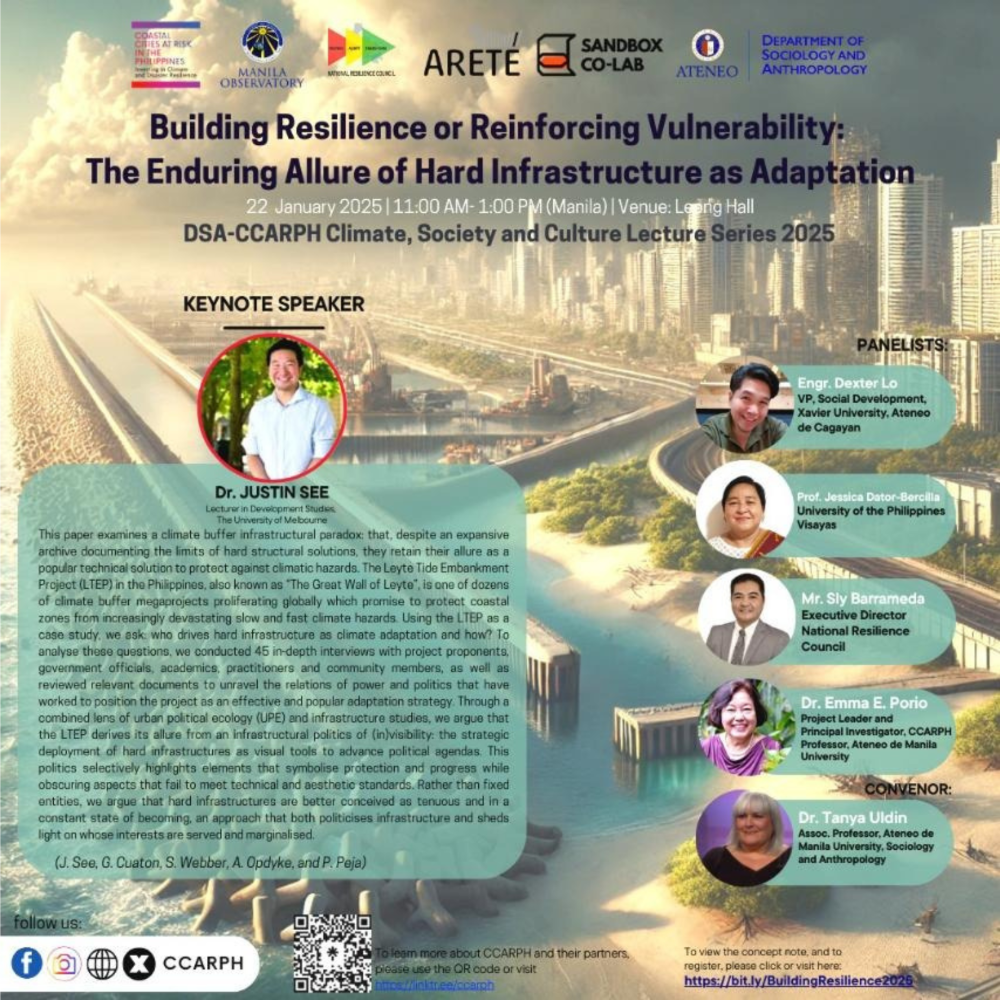Building Resilience or Reinforcing Vulnerability: The Enduring Allure of Hard Infrastructure as Adaptation

The upcoming Climate, Society, and Culture Lecture Series 2025, hosted by the Ateneo de Manila University’s Coastal Cities at Risk Philippines (CCARPH) project, features an insightful discussion on "Building Resilience or Reinforcing Vulnerability: The Enduring Allure of Hard Infrastructure as Adaptation." This event is co-organized by the Arete Sandbox CoLab, the Ateneo Department of Sociology, the National Resilience Council, and the Manila Observatory.
The lecture brings together experts from various disciplines to explore the complexities surrounding hard infrastructure projects as climate adaptation strategies. Dr. Justin See, a lecturer from the University of Melbourne, will deliver the keynote address, and he will be joined by panelists Engr. Dexter Lo (Xavier University-Ateneo de Cagayan), Prof. Jessica Dator-Bercilla (University of the Philippines Visayas), Mr. Sly Barrameda (Executive Director, National Resilience Council), and Dr. Emma E. Porio (Project Leader and Principal Investigator, CCARPH). Dr. Tanya Uldin, Associate Professor of Sociology and Anthropology at Ateneo, convenes and moderates the discussion.
The discussion centers on the Leyte Tide Embankment Project (LTEP), the "Great Wall of Leyte," a megaproject designed to protect coastal zones from climate hazards. The session examines a climate buffer infrastructural paradox: despite an expansive archive documenting the limits of hard structural solutions, such projects continue to retain their allure as popular technical solutions to climatic hazards. Drawing from 45 in-depth interviews with various stakeholders, the paper analyzes how hard infrastructures are strategically utilized as visible symbols of protection and progress, often masking their limitations and marginalizing communities.
To register, visit this link.


